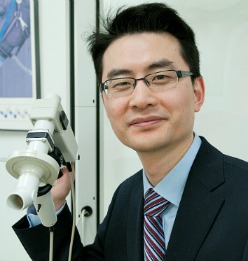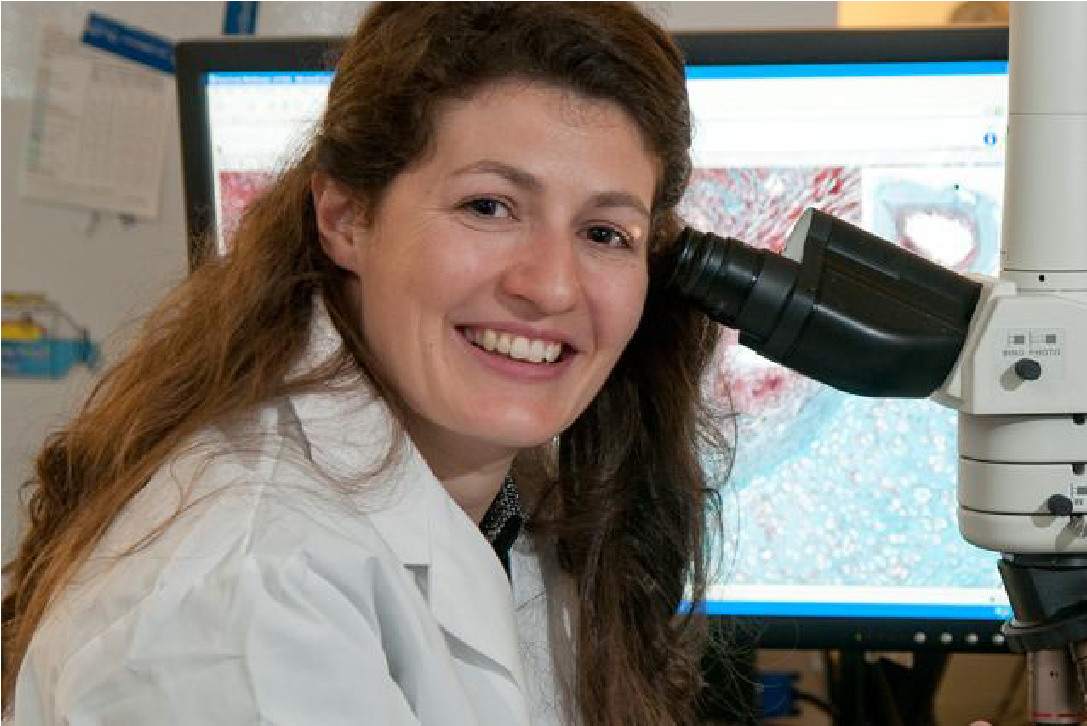
Dr. Nancy Ford
Researcher, COPD
Dr. Nancy Ford is an Assistant Professor and Director, Centre for High-Throughput Phenogenomics at UBC.
Dr. Nancy Ford uses micro-CT technology to study changes to the lung in early stage COPD, before the appearance of other symptoms like emphysema. Earlier detection of COPD might give existing drugs a better chance of working.
Why are you studying COPD in mice?
Traditional methods involve looking at lung tissue under a microscope, which only gives information about the lung tissue structure and possible damage. It does not give information about how the lungs are functioning. Since most patients are diagnosed at later stages of COPD, studying the evolution of the disease in mice can provide an idea of how COPD changes over time, including structural and functional changes within the lungs and blood vessels.
What is innovative about your study?
In our work, we’ll be looking at the lungs non-invasively in a living, breathing animal using micro-computed tomography (micro-CT) imaging. We will be the first research group to investigate the early stages of COPD by imaging live mice, which will give us a picture of the whole lung, rather than small sections. We’ll be taking images of the lungs of healthy mice, and mice exposed to cigarette smoke, both when the lungs are empty and when they are full. This will help us to understand the whole range of lung function and detect possible changes to the airway and blood vessels.
How does your research translate to humans?
Often, COPD is only diagnosed after symptoms like emphysema have already appeared. Since CT imaging is widely available in Canadian hospitals, the imaging techniques and measurements we are developing with micro-CT can be translated to CT imaging and used to detect COPD in humans in its earlier stages. Early detection might give existing drugs the opportunity to slow the progression of the disease before the patient loses lung function. We would like to make a non-invasive tool that monitors the progression of symptoms in rodent models over time. Our research will also be of use to drug companies to help them monitor whether a drug is working or not in the preclinical setting, and as a result, identify which drugs are worth pursuing before investing a lot of money for testing.



